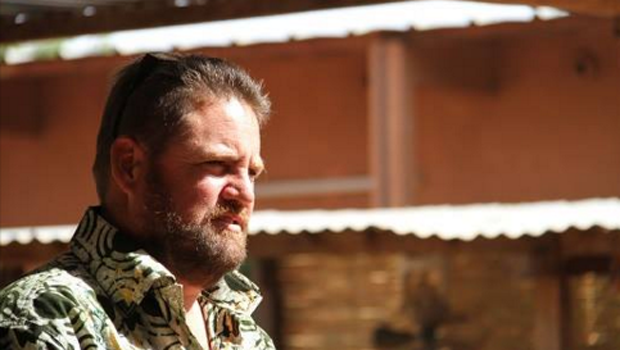Amnesty International says young photographer died in Burkina Faso attack
OUAGADOUGOU, Burkina Faso -- Amnesty International says a French-Moroccan photographer who was wounded in the attack by extremists on a hotel in Burkina Faso has died of a heart attack.
The human rights group says Leila Alaoui was being treated in a hospital after being shot twice, and suffered a heart attack while awaiting medical evacuation. According to the New York Times, she was 33 years old.
Amnesty International said Tuesday that its driver, Mahamadi Ouedraogo, was killed in his car. Ouedraogo was a father of four and had accompanied staff and consultants on missions in Burkina Faso since 2008.
Alaoui was in Burkina Faso for a photography assignment on women's rights.
The French Foreign Minister confirmed her death on Twitter.
According to Alaoui's website, she was born in Paris in 1982 and she studied photography at the City University of New York before spending time in Morocco and Lebanon.
Her work has been exhibited internationally since 2009, including at the Institut du Monde Arabe, Art Dubai and the Maison Européenne de la Photographie in Paris, and has been published in newspapers and magazines, including The New York Times and Vogue. According to the site, she was currently living and working between Marrakech and Beirut.
Amnesty has condemned "the vicious attack on civilians in Ouagadougou."
Officials say about 30 people were killed.
As security forces surrounded the Splendid Hotel and neighboring Cappuccino Café -- both under siege by terrorists -- Amy Riddering tried desperately to reach her husband Mike.
He was at the café when the assault began Friday night.
"I still have no news about Mike," she wrote on her Facebook page Saturday morning.
Florida-native Mike Riddering moved with his wife Amy and two daughters to Burkina Faso in 2011 to start an orphanage. Mike and a pastor were at the café in the country's capital Ouagadougou to meet new volunteers. The pastor later called Amy after escaping.
"Gunmen came into the restaurant shooting and everyone ran to hide. [The] pastor somehow had Mike's phone and called," wrote Amy. It was still unclear if Mike survived.
Another American, Edward Bunker, emerged from his room to a deserted hotel lobby and realized something was wrong.
"I saw cars on fire and a gunman and I realized I had to hide," he said.
The 12-hour siege began when heavily armed al Qaeda militants, two of them women, stormed the buildings and set off car bombs. In all, 28 people were killed, including a Canadian family of four who were on a humanitarian trip.
Edward Bunker, and 11 other Americans, made it out alive. Mike Riddering did not make it out alive.
"You left quite a legacy here. I can only imagine the adventures you're having now," read Amy's final post.
Burkina Faso, a largely Muslim country, had for years been largely spared from the violence carried out by Islamic extremist groups who were abducting foreigners for ransom in Mali and Niger. Then last April, a Romanian national was kidnapped in an attack that was the first of its kind in Burkina Faso.
The country also has been in growing political turmoil since its longtime president was ousted in a popular uprising in late 2014. Last September members of a presidential guard launched a coup that lasted only about a week. The transitional government returned to power until Burkina Faso's November election ushered in new leaders.
The hotel attack in Mali in November also was claimed by a leader of AQIM, who said it had been carried out as a declaration of unity with Algerian militant Moktar Belmoktar's extremist group Al-Mourabitoun, according to an audio speech that was distributed by SITE at the time. Belmoktar was a former leader in AQIM before starting his own group, which now has merged back with al Qaeda.
